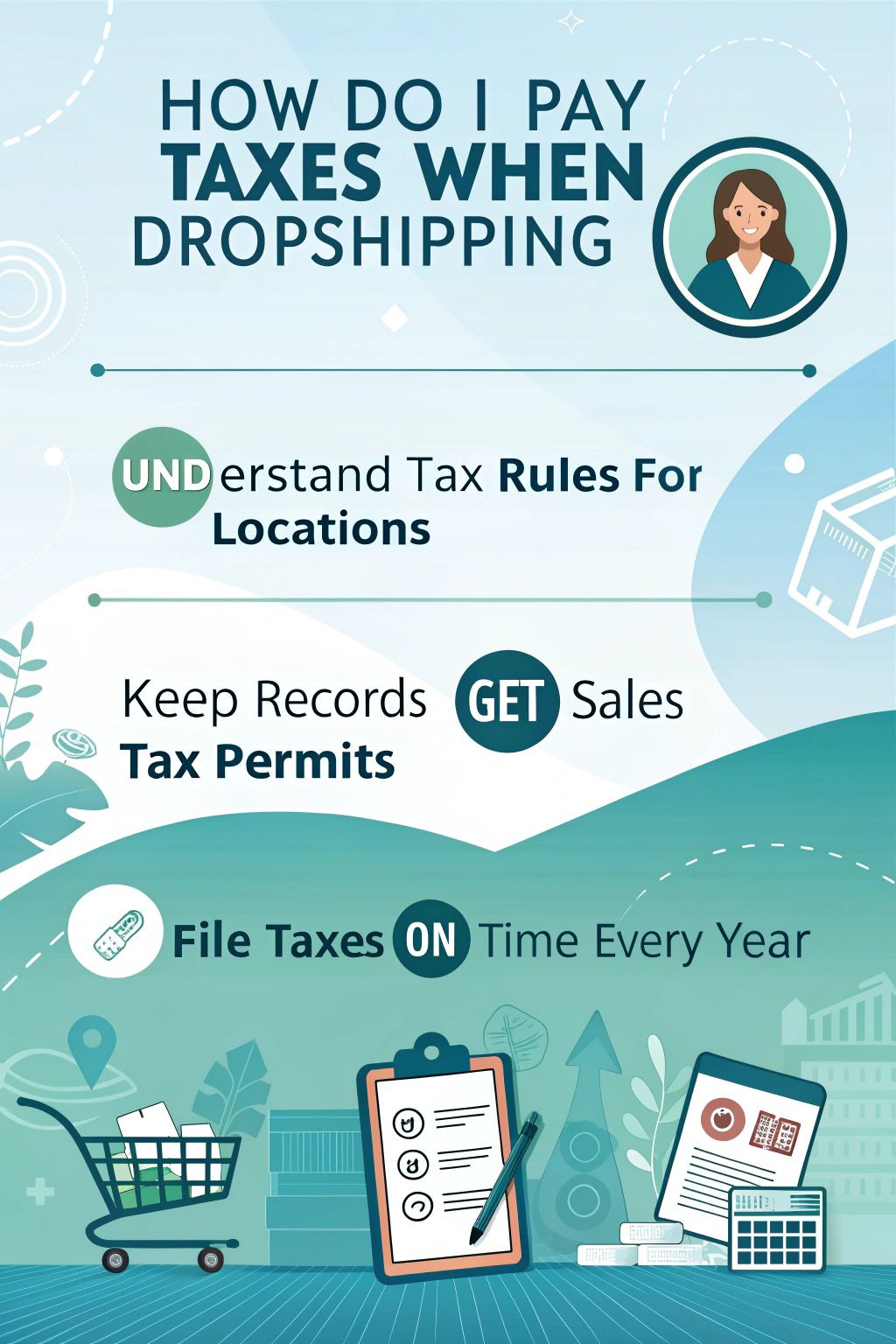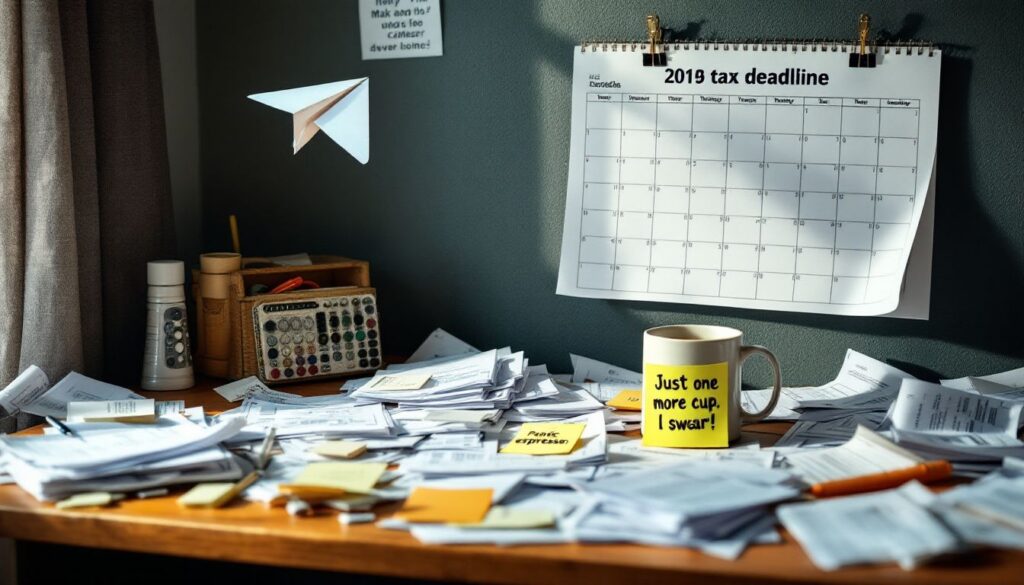Paying taxes on dropshipping can be tricky. Many online sellers find it hard to figure out what they owe and how to pay it. Dropshipping has its own set of tax rules, which can confuse even the most seasoned seller.
One key fact is that SmokeDrop makes ordering and selling smoke products easier by automating the process.
This blog will guide you through the types of taxes you need to know about, how to figure out your tax duties, and tips for managing them without stress. Ready? Let’s learn how to handle those taxes.
Key Takeaways
- Dropshipping taxes are based on where you and your customers live. Each place has its own rules.
- You need to keep good records of all sales and may need a sales tax permit in some states.
- Platforms like SmokeDrop can help manage your dropshipping taxes by keeping track of orders.
- Talk to a tax professional or use online tools to understand what taxes you owe.
- Always file your taxes on time by knowing when they are due in your area.

What Taxes Do You Need to Pay for Dropshipping?

Moving from the basics of dropshipping, it’s crucial to understand the taxes involved. In dropshipping, retailers must track their sales carefully. This is because they need to collect sales tax based on where their customers are located.
The rules can change depending on where you sell and where your customer lives.
Retailers might also need a sales tax permit in their state for dropshipping. This varies by location and where you make sales. It’s key to keep detailed records of all purchases and sales.
Tools like SmokeDrop can help manage these details. Getting advice from a tax professional is wise too, as they can explain specific duties based on your situation. Retailers have to look after their own taxes in this business model.
How to Determine Your Tax Obligations
Figuring out tax obligations for dropshipping can seem tricky. Online dropshippers need to know what taxes they must pay.
- Look at where you live. Your location plays a big part in your tax duties. Each country has its own rules for businesses.
- Think about where your customers are. You might owe taxes in the places where your buyers live, not just where you do business.
- Register for a sales tax ID if you’re in the U.S. This lets you collect sales tax from customers in certain states.
- Find out if you need to pay income tax on what you earn from dropshipping. Most of the time, the answer is yes.
- Check for special taxes on online sales. Some places have extra taxes just for online shops.
- Use online tools or talk to a tax pro to understand your taxes better. They can help figure out what you owe and how to pay it.
- Keep all your sales records straight. Good records make figuring out taxes easier and help if there are questions later.
- Learn when tax forms are due in your area and set reminders so you don’t forget to file them on time.
- Realize some products might have extra duties or import taxes based on what they are or where they come from.
Understanding these points helps dropshippers handle their tax responsibilities right and avoid trouble with the law.
Tips for Managing and Paying Dropshipping Taxes
Managing and paying taxes for dropshipping can seem tricky. Here are some helpful tips to keep everything in order.
- Utilize automated order fulfillment platforms like SmokeDrop. This helps streamline tax management and saves time.
- Integrate sales platforms such as Shopify, WooCommerce, or BigCommerce. This makes managing tax obligations much easier.
- Ensure automatic order syncing for accurate tracking of sales. This is vital for good inventory management and helps with tax reporting.
- Take control of the dropshipping process to improve tax documentation. Good records make filing taxes simpler and less stressful.
- Simplify inventory tracking by using easy product imports. This supports accurate tax calculations and keeps everything organized.
- Leverage no minimum order requirements for wholesale purchasing. It gives flexibility to your tax strategy, which can be a great advantage.
- Maintain comprehensive tracking numbers for transparency in tax reporting. Clear records help avoid problems with the IRS or state authorities.
Conclusion
Paying taxes when dropshipping is key. It can seem tricky, but it isn’t impossible. Understanding what taxes to pay helps a lot. Sales tax and income tax are the basics to focus on first.
Keeping track of these duties makes filing easier.
Entering eCommerce means knowing your obligations will save time later. Consider how these steps can improve business flow and keep everything in line with the law.
Many resources are available for further learning on this topic. For example, using platforms like SmokeDrop can simplify order management too! Taking action now leads to success down the road—so get started today!
FAQs
1. How do I pay taxes when dropshipping?
Paying taxes when dropshipping can feel tricky, but it’s not too bad. You need to report your income from sales on your tax return. Keep track of all your earnings and expenses—trust me, this will save you a headache later!
2. Do I need to collect sales tax for my dropshipping business?
Yes! If you’re selling products in certain states, you might need to collect sales tax from customers. This means checking the rules where you sell and making sure you’re doing it right (no one wants a surprise audit!).
3. What records should I keep for my dropshipping taxes?
You should keep records of your sales, receipts for purchases, and any fees you pay (like shipping or platform fees). Good record-keeping helps make filing easier—and keeps those pesky tax questions at bay.
4. Can I deduct expenses related to my dropshipping business?
Absolutely! You can deduct costs like website hosting or advertising as long as they relate directly to your business activities. Just remember—you’ll want proof of these expenses if Uncle Sam comes knocking!



